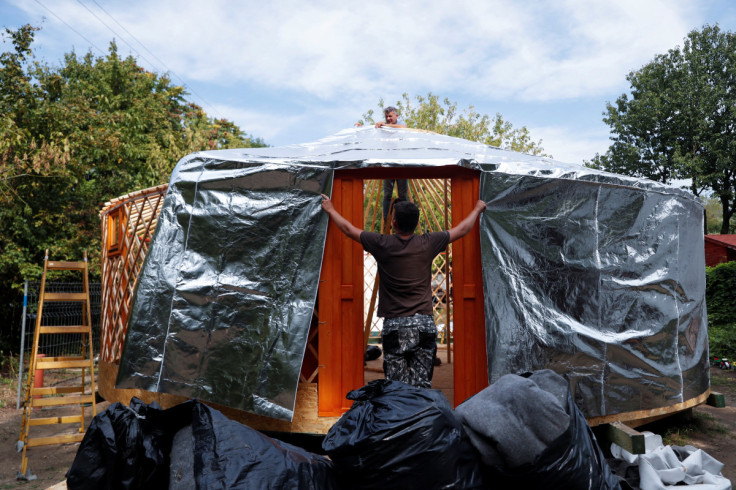In Canada, Your Parents' Homeownership Could Triple Your Chances Of Owning A Home, New Study Reveals

KEY POINTS
- If a parent-owned multiple properties, the odds of their children owning a home rose to 23.1 per cent - nearly triple the odds of kids without home-owning parents.
- The report also found that income played a significant role for those included in the study
Getting on the property ladder is tough these days.
While prices have cooled since the pandemic housing boom, higher mortgage rates are a severe hurdle for would-be buyers.
The average home selling price in Canada was $656,625 last year, up 1.8 per cent from the previous year.
The average price in Toronto hit $1,125,928; in Vancouver, it reached $1,196,500.
However, a new study by Statistics Canada has found that some Canadians have a significant advantage in getting on the property ladder over others - their parents.
If your parents are homeowners, you're twice as likely to own a home as those without a generational stake in the housing market, according to a new Statistics Canada analysis on the impact of the "Bank of Mom and Dad."
The study provides the first detailed analysis of the relationship between parents who own property and the likelihood of their children owning a home, using tax data and data from the Canadian Housing Statistics Program.
The agency's report, released on Monday, looked at homeownership rates among those born in the 1990s and compared cohorts of parents who were owners with those who weren't.
Overall, Canadians born in this decade had a homeownership rate of 15.5 per cent, though those rates rise the older the person in the cohort.
Within this group, StatCan found that the adult children of non-homeowners had a homeownership rate of 8.1 per cent as of 2021.
However, the ownership rate rose to 17.4 per cent for those whose parents were homeowners.
If a parent-owned multiple properties, the odds of their children owning a home rose to 23.1 per cent - nearly triple the odds of kids without home-owning parents.
The StatCan report did not consider whether financial gifts were part of adult children's buying a home.
Still, it did cite separate studies about the growing prominence of intergenerational wealth transfers in helping to fund home purchases.
The report also found that income played a significant role for those included in the study: non-owners reported an average income of $36,000, compared with $65,000 among those owning property.
However, StatCan also found a correlation between parents who owned one or more properties and the relatively higher income among their children.
The degree to which having a home-owning parent made a difference in adult children's ownership was greatest in Ontario and British Columbia - Canada's most expensive housing markets.
"This may signal that in housing markets with higher property values, where higher incomes are necessary for ownership, parents' property ownership or wealth plays a larger role in their adult children's homeownership outcomes," the report read.
"Inequality of homeownership appears to be reproduced across generations as parents' property ownership conveys significant financial advantages to their children."
Where you live also makes a difference.
Canadians born in the 1990s had the highest homeownership rates in New Brunswick, at 20.5 per cent, and the lowest in British Columbia, at 14.1 per cent, reflecting that region's high property prices.
The gain from parental property ownership to the homeownership rate was also highest in Ontario and British Columbia.
"This may signal that in housing markets with higher property values, where higher incomes are necessary for ownership, parents' property ownership or wealth plays a larger role in their adult children's homeownership outcomes," said the study.
Homeownership - and the role of parents' wealth in affording it - is hotly debated today as Canadians struggle to save for and purchase a home amid the rising cost of living.
Housing Minister Sean Fraser said Monday that while many Canadians can have productive lives without owning a home, their parents' real estate portfolios shouldn't limit those who choose to enter the ownership market.
"One of the things that's essential to me is your ability to succeed in Canada shouldn't depend on how much money is in your parent's bank account," he told reporters in the House of Commons.
Finance Minister Chrystia Freeland said last year that housing unaffordability reflects "intergenerational injustice."
The Liberal government has since rolled out measures such as a new tax-free account to save for purchasing a first home and efforts to boost the available housing stock to address housing affordability concerns.
© Copyright IBTimes 2025. All rights reserved.






















